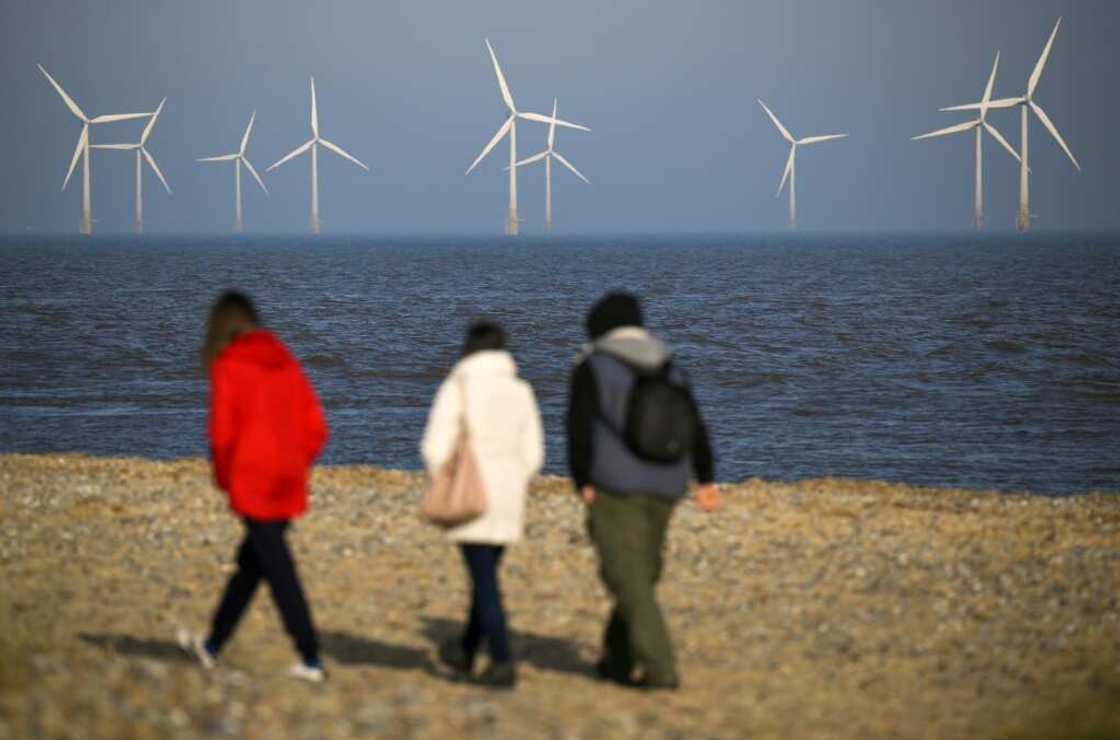No offshore wind in latest UK green energy auction

Source: AFP
Unlock the best of Legit.ng on Pinterest! Subscribe now and get your daily inspiration!
No offshore wind power projects received public funding in the latest round of support for British green electricity projects, which jeopardises plans to decarbonise the power sector by 2035, environmental groups warned Friday.
The measure could also end up costing consumers more, said campaigners.
With offshore wind at the heart of Britain's plans to remove fossil fuels from electricity production by 2035, Greenpeace UK's policy director Doug Parr described the result as a "monumental failure".
Industry had warned ahead of time that the price had been set too low for offshore wind, said environmental groups.
Only a third as many projects as last year received funding, they added -- so the auction was a failure that endangers the government's target of doubling offshore wind by the end of the decade.
Activist group Britain Remade estimated that the failure of the auction would lead to an extra billion pounds in electricity costs for consumers as higher-cost fossil fuel generation capacity will need to fill the gap.
PAY ATTENTION: Share your outstanding story with our editors! Please reach us through info@corp.legit.ng!
There were no offshore wind bids submitted in this year's auction, which industry players put down to the price terms.
"The economics simply did not stand up," Keith Anderson, chief executive of Scottish Power, said on Friday.
'Inept'
The government put the blame on inflation making offshore wind uncompetitive and insisted it remained committed the technology.
Energy and Climate Change Minister Graham Stuart added in the statement that offshore wind remained "central" to Britain's ambition to decarbonise its electricity supply.
The government said that "while offshore and floating offshore wind do not feature in this year's allocation, this is in line with similar results in countries including Germany and Spain, as a result of the global rise in inflation and the impact on supply chains".
Building and maintaining offshore wind turbines is more expensive and their electricity production costs are thus higher. Onshore wind, solar, and geothermal projects received British public funding this year.
The cost of materials used to make wind turbines, such as aluminium, copper and steel, have soared in the wake of Russia's invasion of Ukraine.
"Thanks to cost pressures and inept government policy, this auction round has completely flopped -- denying bill payers access to cheap, clean energy and putting the UK’s legally binding target of decarbonising power by 2035 in greater jeopardy," Greenpeace's Parr said.
"It leaves the UK more dependent on expensive, imported fossil gas."
Source: AFP




